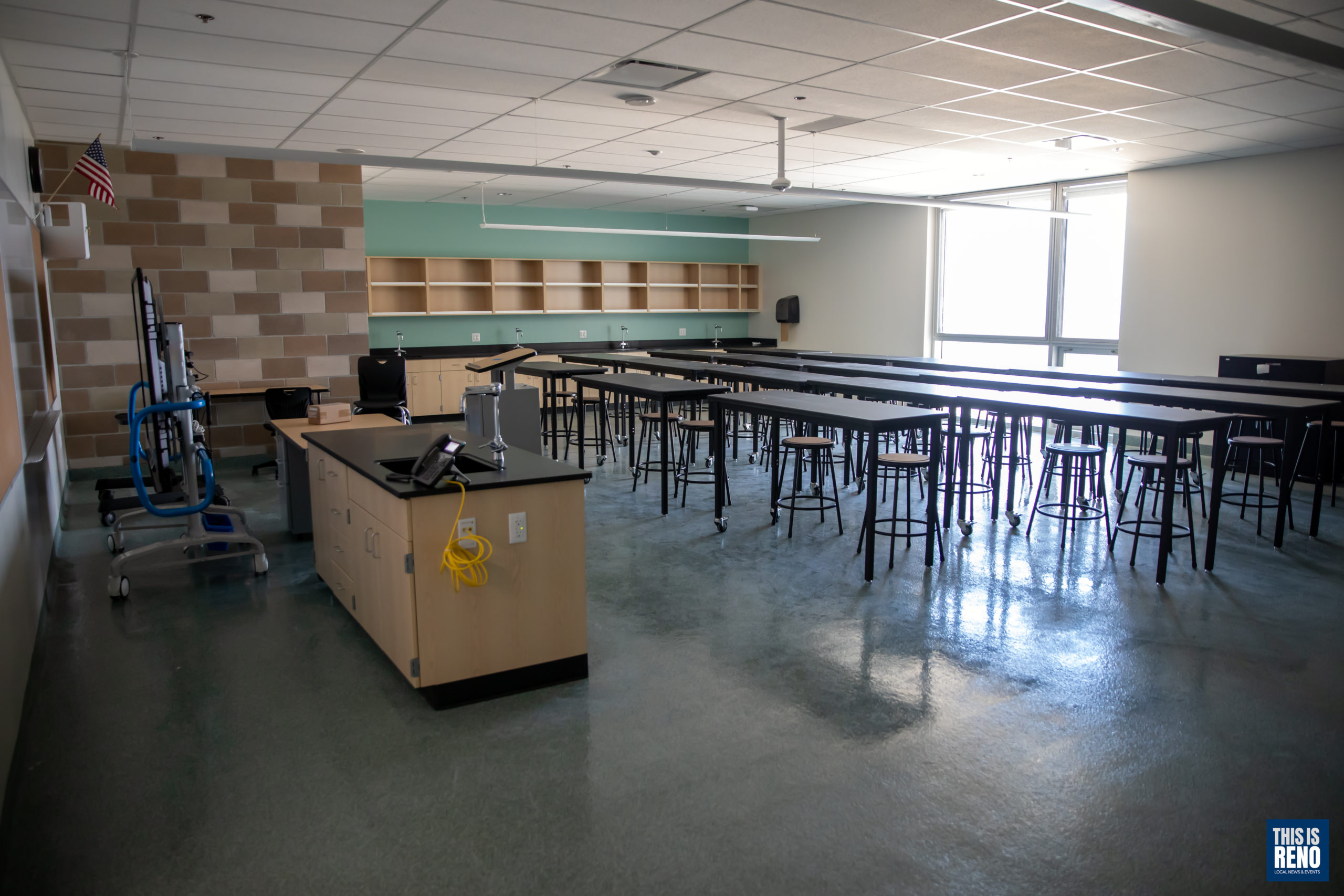Last week, Washoe County School District Superintendent Kristen McNeill announced that she’d be recommending to the board of trustees that all students in the county be moved to full-distance learning following the Thanksgiving break until mid-January.
McNeill has said on multiple occasions that staffing, a lack of contact tracing and a lack of testing all present challenges in keeping the district open for in-person learning.
The district announced on Tuesday that it was short 200 substitute teachers, and during the meeting trustees heard information about the number of requests for substitutes—which trustees repeatedly referred to as “guest teachers.” During the first three weeks of November, there were 6,783 requests for substitutes and 70% of those requests were able to be filled.
However, after a more than 10-hour long meeting — from 4 p.m . to 2 .a.m. — the board of trustees voted to send only middle and high school students to distance learning beginning on Wednesday, Dec. 2.
In addition to elementary school students, special education students and schools that house both elementary and middle school students will continue in-person learning—including Mount Rose School and the Gerlach K-12 school. The Washoe Inspire Academy, Marvin Picollo Elementary School and Turning Point School will also continue in-person learning.
These decisions affecting elementary and secondary students and their families were made after the board heard what have become regular updates on COVID-19 trends and the spread of the virus in the community. However, the votes on these matters were not unanimous.
Trustee Sharon Kennedy voted against the move to place secondary students on distance learning temporarily. Trustee Andrew Caudill voted against continuing full-time, in-person learning at Picollo, Inspire and Turning Point. He also voted against a motion to move “general resource students in secondary schools to the full distance learning model, with in-person learning for small group time to ensure educational minutes are met pursuant to Individual Education Programs (IEPs).”
In all, it took seven motions and votes for the trustees to settle upon plans concerning which students would be moving to distance learning and which would remain in-person based upon their grade levels or educational needs. Trustee Caudill, late in the evening, expressed his frustration about making any changes to learning models for special education students—all of which he voted against.

“I wasn’t given any of this information to prepare in advance to make this kind of decision,” Caudill said. “That’s why we’re going in circles—because we don’t have the information. We don’t have the recommendations. We don’t have the reasons why you’re making the recommendations and what it means for kids, families and schools.
“I have to vote no on any motion that changes the learning model for special ed—because we don’t have the information. We’re going to be here all night because I don’t know all of the intricacies of special ed. I don’t know all of this stuff. I need the district to tell us what you want, what you want us to consider. We don’t have any of it. We’re going to keep spinning our wheels because we don’t have the information,” Caudill said.
McNeill responded, “With all due respect, I think the staff has taken a great amount of time in order to put the recommendations forward and to provide the information we’re bringing forward today… I think this has been a very robust conversation. And I know a lot of us are tired and that there are a lot of intricacies here. But I’m sorry, I’m going to have to disagree to say the staff has not prepared. We’re trying our very best. These are very complex matters, and they’re also legal matters when we’re taking about Individual Education Plans.”
Prior to the board meeting, McNeill was sent a letter from local attorney Stephanie Rice written on behalf of families of students with disabilities noting, “Federal law requires all Districts to meet the needs of all students. Under the Individuals with Disabilities Education Act (IDEA), students with intellectual or developmental disabilities are legally entitled to a free and appropriate education. For students who receive special education services this is outlined in an Individualized Education Plan (IEP).
“My clients with IEPs have not received the services they are entitled to by law, since March of last year and despite repeated demands, we have not seen one single plan for how the district is going to implement federally mandated Services if the board goes to full distance learning.”
It was after hearing from Washoe County Manager Eric Brown that Board President Malena Raymond and Trustee Katy Simon Holland broached the topic of keeping elementary schools open. Brown indicated that the Washoe County Health District would be able to focus its contact tracing resources on elementary schools were they the only ones open.
During the meeting, Washoe County Board of County Commissioners chairman Bob Lucey told trustees a move to distance models would likely deal a blow to the region’s health care system because hospital workers would be left without childcare.
“Your school district has done a phenomenal job, and I would hate to see us go backwards when you have made so many strides forward,” Lucey said.
Students are tentatively planned to be returned to classrooms on Jan. 4. This will be reevaluated during the board’s next meeting on Dec. 8.
“We knew that whatever decision we make there will be people that disagree and think we did the wrong thing,” Raymond said. “All we can do is try to make the decision based on the data that we have to support the safety of our schools and also the data we have to support in-person learning for our youngest learners.” WCHD Officer Kevin Dick commended the board’s decision, saying, “It was the proper decision for the school district to make.”

